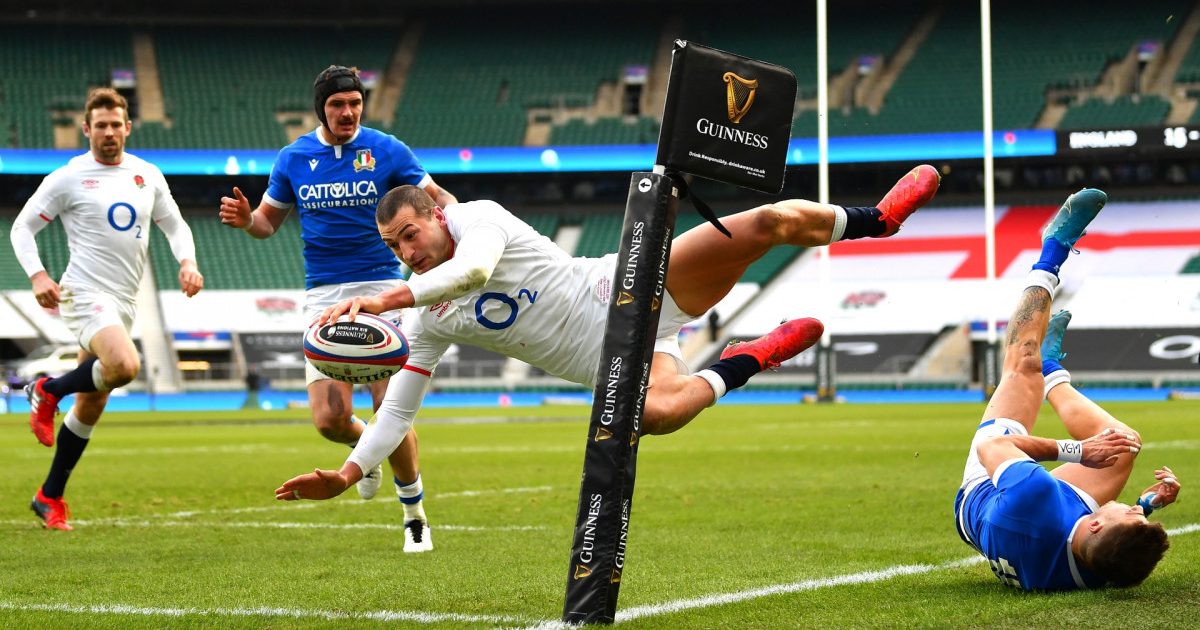'Smart way to finish. Absolutely brilliant': England's response to Jonny May's try-scoring acrobatics

Eddie Jones has hailed the spectacular fashion in which Jonny May scored his try against Italy at Twickenham which enabled the England winger to become his country’s second-highest try-scorer of all-time. England defeated Italy 41-18 in their round two Guinness Six Nations meeting and the finish of the acrobatic May for his 32nd Test level try just before the interval was a major talking point following a match that disappointingly saw Jack Willis stretchered off with a serious-looking knee injury.
May jumped for the line from a mid-air horizontal position and his dexterity catapulted him past the tackle of Luca Sperandio and up the England scoring charts, the try putting him ahead of Ben Cohen and Will Greenwood into clear second and leaving him with only Rory Underwood total of 49 is the last remaining target.
“He has obviously been watching rugby league tapes,” enthused Jones following the win that got England’s title defence back on track after last weekend’s setback versus Scotland. “In NRL that is a fairly traditional way to finish. Smart way to finish. Absolutely brilliant.
“He has had a look at videotapes of it. It is a very common way of scoring tries in the NRL and I know during the World Cup the guys did some practice and he might have done some practice by himself. I haven’t seen him do it as such but he is a great try scorer. He is always looking to see how he can score a try.”
Jones was also fulsome in his praise for Anthony Watson who scored two tries in the win and finished out the game helping the scrum following the injury to Willis. “He looked sharp, really good.
The Super Bowl was last weekend, @J0nnyMay ?
Enjoy, @EnglandRugby fans.#GuinnessSixNations #ENGvITA pic.twitter.com/WeyR3poPQe
— Guinness Men's Six Nations (@SixNationsRugby) February 13, 2021
“He is getting back to his best form. He had a difficult time after the World Cup with a number of injuries, wasn’t at his best in the autumn but he has had a really good training period now and he is definitely coming back to his best.
“I was really pleased,” added Jones, reflecting on how England closed out the victory. “If you look at the team for the last 30 minutes we (only) had three guys over the age of 26. All young guys, full of energy, it’s going to help take the team forward.”
That man again scoring wonder tries. https://t.co/GXlAIEpTwW
— RugbyPass (@RugbyPass) February 13, 2021

































